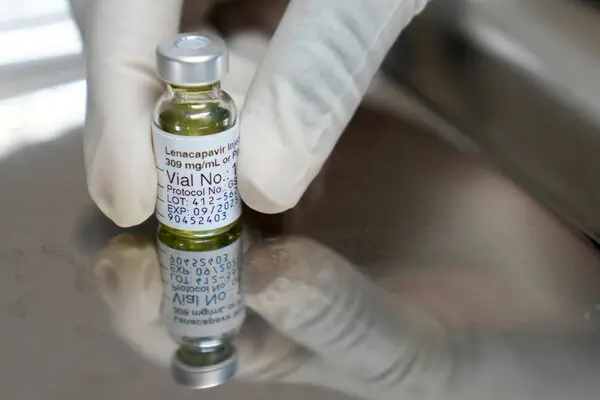The World Health Organization (WHO) has released new guidelines recommending the use of injectable lenacapavir (LEN) twice a year as an additional pre-exposure prophylaxis (PrEP) option for HIV prevention.
It is a landmark policy action that could help reshape the global HIV response.
The guidelines were issued at the 13th International AIDS Society Conference (IAS 2025) on HIV Science, in Kigali, Rwanda.
LEN, the first twice-yearly injectable PrEP product, offers a highly effective, long-acting alternative to daily oral pills and other shorter-acting options.
With just two doses per year, LEN is a transformative step forward in protecting people at risk of HIV, particularly those who face challenges with daily adherence, stigma, or access to health care.
“While an HIV vaccine remains elusive, lenacapavir is the next best thing: a long-acting antiretroviral shown in trials to prevent almost all HIV infections among those at risk,” said WHO Director-General, Dr Tedros Ghebreyesus.
“The launch of WHO’s new guidelines, alongside the FDA’s recent approval, marks a critical step forward in expanding access to this powerful tool.
“WHO is committed to working with countries and partners to ensure this innovation reaches communities as quickly and safely as possible,” he added.
The new guidelines come at a critical moment as HIV prevention efforts stagnate with 1.3 million new HIV infections occurring in 2024.
Read also:
- Scientists achieve major breakthrough in tackling HIV/AIDS using CRISPR!
- Children’s Day: NACA reinforces commitment to an HIV-free generation
- Taraba inaugurates committee to tackle mother-to-child transmission of HIV
The WHO’s recommendation on LEN signals a decisive move to expand and diversify HIV prevention,
As part of these guidelines, WHO has recommended a public health approach to HIV testing, using HIV rapid tests to support delivery of long-acting injectable PrEP, including LEN and cabotegravir (CAB-LA).
The simplified testing recommendation removes a major access barrier by eliminating complex, costly procedures and enabling community-based delivery of long-acting PrEP through pharmacies, clinics, and tele-health.
LEN joins other WHO-recommended PrEP options, including daily oral PrEP, injectable cabotegravir and the dapivirine vaginal ring, as part of a growing arsenal of tools to end the HIV epidemic.
While access to LEN outside clinical trials remains limited at the moment, WHO urges governments, donors and global health partners to begin rolling out LEN immediately within national combination HIV prevention programmes, while collecting essential data on uptake, adherence and real-world impact.
For the first time, WHO’s treatment guidelines include a clear recommendation for the use of long-acting injectable cabotegravir and rilpivirine (CAB/RPV) as an alternative switching option for antiretroviral therapy (ART) for adults and adolescents who have achieved full viral suppression on oral ART and do not have active hepatitis B infection.
This approach is designed to support people living with HIV facing adherence challenges to oral regimens.
Updated guidelines on service delivery integration include recommendations to integrate HIV services with non-communicable diseases (NCDs) such as hypertension and diabetes, as well as mental health care for depression, anxiety and alcohol use disorders into HIV services, alongside interventions to support ART adherence.






